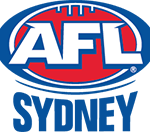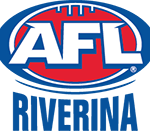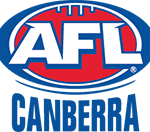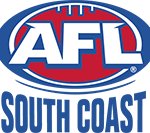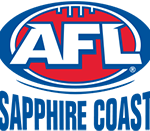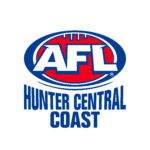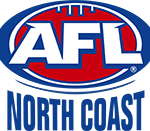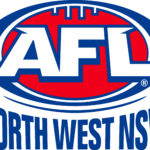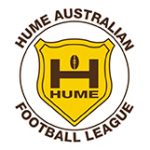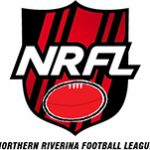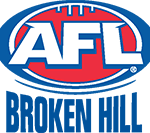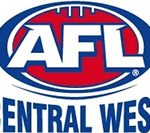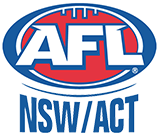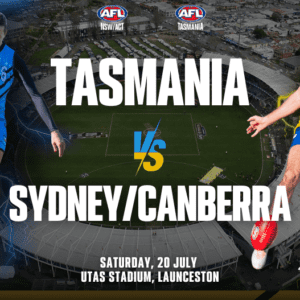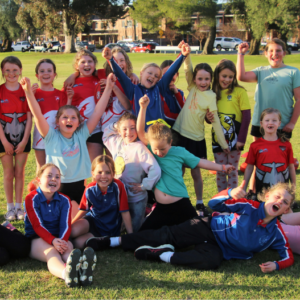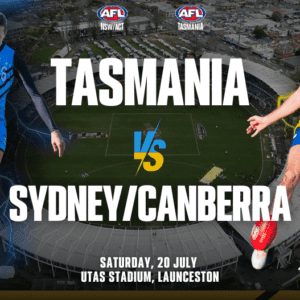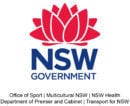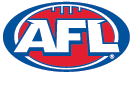Building a GIANT Future
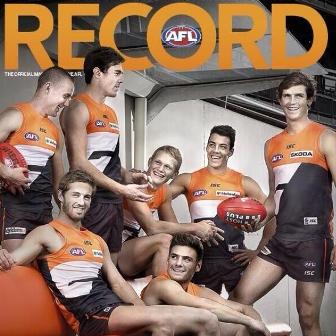
This article first appeared in the AFL Record
By James Dampney
When 17-year-olds Adam Treloar, Dylan Shiel and Jeremy Cameron first turned up on Greater Western Sydney’s doorstep in late 2010, their initial point of call was the Rooty Hill RSL.
There was a makeshift office upstairs and no permanent training ground, just a bunch of wide-eyed teenagers – many of whom were too young to be in a licenced venue – chasing their AFL dream.
“There were slot machines downstairs, people coming in to play bingo and here we are setting up an AFL club,” Treloar recalls.
“There were about 15 players and we shared the gym with other random people coming in. It was pretty crazy.”
Compared to Collingwood’s Westpac Centre or North Melbourne’s $16 million redevelopment at Aegis Park, it was a modest beginning to say the least.
But it was one of the first steps for a club that, from the outset, was determined to overcome any obstacle and become an AFL powerhouse.
On field, draft concessions agreed upon by every AFL club ensured the League’s 18th franchise would be given a significant leg-up in its long journey towards becoming a competitive team.
But outside of draft picks, it had to convince others there was a clear vision, an unmistakable pathway that would ultimately lead to success.
The first to come on board from a rival club was former Adelaide defender Phil Davis, a top-10 draft pick who was viewed by the Crows as a future leader.
Instead, he signed a five-year contract with GWS and, at the tender age of 21, joined Callan Ward and Luke Power as the Giants’ inaugural co-captains.
“Whenever you’re committing five years of your life, almost to the unknown, you have to have a bit of faith in what they’re doing,” Davis said.
“To (list manager) Stephen Silvagni and (football manager) Graeme Allan’s credit, their vision was a great vision for the footy club.”
Ward was another to be tempted away from an AFL rival, following 60 games in four promising seasons with the Western Bulldogs.
Ward has been a revelation, taking out the first Kevin Sheedy Medal as the club’s best and fairest player last year, and he would again be right at the head of the pack in 2013.
He also had complete faith from the start in the direction the club was taking.
“I did and that’s a huge reason why I actually came here,” Ward said.
“With all the draft picks that we had, I was told the talent we’d get was the best in the country for the first two years, so the potential to play in finals and hopefully premierships in four or five years’ time was a huge lure.
“But we can’t just talk about it. I hear people externally talking about the Giants playing finals in two or three years, but it won’t just happen.
“Now all the hard work has to be done. It’s up to us now.”
And that’s right where the Giants now find themselves.
There is no question GWS possesses a veritable bounty of riches when it comes to playing talent.
Sixteen first-round draft picks over the first two years ensured that.
The Giants also took full advantage in 2010 of their access to the country’s best 17-year-olds, which led to the arrival of Cameron, Shiel, Treloar and Tom Bugg, among others.
Cameron is already emerging as one of the competition’s top key forwards and Jonathon Patton has done enough when fully fit to show they will form a damaging goalkicking tandem.
The club’s record eight Rising Star nominations in 2012 are also an indication of the riches at hand, while last year’s silky-skilled No. 1 draft pick Lachie Whitfield has made a terrific start to his career.
Throw him in among Shiel, Treloar, Stephen Coniglio, Tom Scully, Toby Greene and Dom Tyson and the pieces are in place for an outstanding midfield.
Davis will hold down a key defensive post for the next decade, with Tim Mohr emerging as another excellent defender, while Jonathan Giles has proven to be a top-level ruckman.
If the club can achieve its ambitious aim of signing another premier ruckman, a key defender and a forward – dare we mention Lance Franklin – every need will be filled.
But it is not all smooth sailing. The challenges keep coming for a club that appears to have all the right tools in place.
With some of the game’s most prodigious talent drawn to western Sydney, the next issue was retaining them.
With the other 17 clubs circling, the Giants warded them off by re-signing the vast majority of their players until at least the end of 2015.
One of the most successful moves in that endeavour was to use the impressive Breakfast Point on the Parramatta River as a base for all the youngsters.
“Coming up here, no one really had a social life or friends outside of the club,” Shiel said.
“Housing everyone at Breakfast Point, sort of that college campus-type lifestyle, really helped us bond.
“We all want the club to be successful in the future and that’s definitely a reason why, not only myself, but a lot of the boys wanted to sign on. The club is going in the right direction and we want to be a part of it.”
Now it’s all about that hard work.
As Ward suggested, the perception from the outside is the Giants only have to wait for the players to mature, and to add a few more experienced pieces, before victories start flooding through the door.
But the playing list has bought into the ethos from coach Kevin Sheedy and senior assistant Leon Cameron that an extraordinary amount of work is required for their undoubted potential to be turned into success.
They needed a permanent base to call home, with the nomadic club skipping from Blacktown to Rooty Hill and back to Blacktown before finally settling at Sydney Olympic Park.
Tom Wills Oval is up and running as a training ground and its adjoining multi-million dollar football and administration centre will be completed by the start of the 2014 season.
That facility has been a key factor in the club’s ability to sell the future to its players, and to any potential future recruits, including a certain superstar key forward from Hawthorn.
Now, experience that can only be gleaned from playing games, combined with plenty of work on the training track, separates the Giants from on-field success.
“When you’re a junior, you just train for the sake of training so you can play on the weekend,” Davis said.
“In the AFL, the best players have the best training standards.
“I was fortunate to see Simon Goodwin and Andrew McLeod, the two best trainers I think I’ve ever seen.
“Coming here with so many young players, the intensity, the efficiency and the desire to compete at training, all those aspects have improved, and that slowly drip feeds into games.”
Scully is another player who was lured to the Giants from another club and has faced more scrutiny than anyone else during the GWS journey.
Often maligned by outsiders, those on the inside invariably mention Scully’s name whenever work ethic and training standards are mentioned.
One of three No. 1 draft picks on the GWS list, along with Patton and Whitfield, the former Melbourne midfielder is improving markedly on the field and emerging as a leader off it.
Quietly spoken, the 22-year-old was elevated to vice-captain in 2013 and is a fierce advocate of plain old hard work.
“It’s been a challenge with such a young group who are still finding their feet at AFL level and working out how hard it is to become an AFL footballer,” Scully said.
“That’s the biggest challenge, finding that balance and getting the right values and standards.
“If we get those things right, with the amount of talent in the group, we’d like to think we could be a really good team.”
Therein lies the key to this entire experiment coming together for the Giants – no one at the club simply assumes they will succeed.
If someone was to run a market right now on who would be in running to win the 2018 premiership, it is likely the name Greater Western Sydney would be right at the forefront.
But the players rarely allow themselves time to dream of such lofty achievements.
The stark reality is that heading into round 12, the Giants still have not won a game this season.
So it is understandable they are reluctant to look too far ahead.
In fact, the first 18 months the club has spent at senior level have been a humbling experience for many.
“Obviously it’s going to be a lot harder than everyone thought to reach success,” Shiel said.
“The media and maybe the opposition were saying it was going to be easy for us to get to the top, but as it’s turned out, it’s going to be a lot harder.
“(GWS welfare manager) Craig Lambert summed it up at a recent post-match function. He said ‘the toughest will survive in this game’.
“Hopefully we’ve got a lot of tough players at the club who can withstand this grind.”
They may be finding it a little difficult right now, but make no mistake, they are up for the challenge.
If they are ever in need of a little inspiration, the Giants only need look north to the Gold Coast.
The Suns lost 14 consecutive games to start their second season, leading to plenty of question marks over the build of their list and the direction they were taking.
Those questions have since been silenced, however, by the Suns’ competitive start to year three. And the Giants are taking note.
“We’re hoping we can be similar to them, if not better than them, next year,” Treloar said.
And every now and again, in those quiet moments, the Giants do dare to dream of what could be if the club remains tightknit and retains faith in its direction.
“Of course. You’d be silly not to,” Shiel said.
“That’s why we’re training so hard, that’s why we’re doing all of the little things each day – our weights, our pilates, our meetings – because we have that dream of wanting to play finals footy, wanting to play at the MCG in front of 100,000 people.
“There’s no doubt that all of us are dreaming. You have to have dreams if you want to succeed.”
It has been an adjustment for a group of precociously talented teenagers who were used to dominating junior competitions and who took winning for granted.
The AFL landscape has remained mostly quiet during the Giants’ struggles, because no one doubts the path the club is on.
The players now know it won’t be easy, but they also know where they are heading.
“It’s tough for a lot of us. We were all gun 18-year-olds. I never lost when I was a junior,” Treloar said.
“Here I’ve played 28 games or something and I’ve only won two. But our time will come.
“I love this club. They’ve given me this opportunity to find my feet in the AFL and hopefully I can stay here for the next 10-15 years.
“I know we’re going to be a good team, a powerhouse team, and I want to be here when that happens.”
